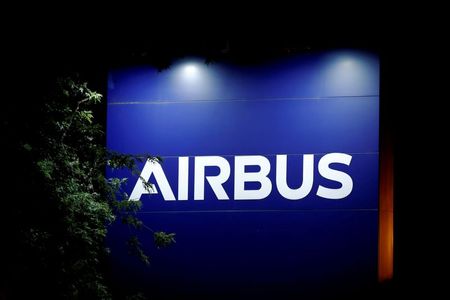Airbus raises 20-year delivery forecast as aviation’s ‘centre of gravity’ shifts east

Airbus has today upped its 20-year forecast for the number of new aircraft it expects to deliver, estimating a total of 40,850 by 2042, up from 39,490 last year amid rising demand for fuel-efficient jets.
The aerospace titan said that 80 per cent of its crafts would be made up of single-aisle jets, such as the infamous Boeing 737 Max, with 20 per cent (8,220) made up of wide-body carriers like the A300.
“People want to fly – and want to fly sustainably.
“More and more people are flying for the first time than ever before, while emissions per revenue passenger kilometre have halved through technology and operational improvements over the last 30 years,” the group said today.
The aircraft manufacturer’s new forecast rests on the back of a 3.6 per cent uptick in traffic growth over the period.
Airbus said that the strongest growth would be seen in Asian markets, with aviation’s “centre of gravity” shifting towards the far east.
Growth in demand for aircrafts from Airbus and its long-term rival Boeing as a result of a post-pandemic travel boom, has so far been led by Asian markets, with the International Air Transport Association (IATA) stating this month that “most of the momentum seen in early 2023, was driven by developments in the Asia Pacific region.”
Conroy Gaynor, aviation analyst at Bloomberg Intelligence, told City A.M. “China, India and the Middle East play a big part in this forecast,” but added that for European airlines, “there are still structural growth opportunities as consumer lifestyle becomes more experience-focused and incomes rise, particularly in some of the continent’s central and eastern nations.”
The revised forecast also comes at a time when airlines are rushing to replace their fleets post pandemic, placing orders for greener, fuel-efficient planes in a bid to gain competitiveness amid a highly anticipated period of pent-up demand.
Gaynor added: “Over the 20-year period, we would expect the climate debate to gather momentum as we approach 2050 for net zero commitments, so adoption of new planes and technologies are implied in growth forecasts.”
George Ferguson, senior aerospace analyst at Bloomberg Intelligence, said: “The pandemic has reinforced the idea that the desire to travel is strong. As wealth increases people typically consume more travel, especially by air, which we see continuing and helps to drive Airbus’ forecast.”
“There is strong demand for the latest, most fuel-efficient aircraft which are the Airbus A320neo and Boeing 737 Max family. The conversion to those aircraft will continue to drive demand.”